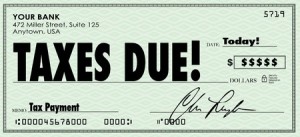New Jersey lawmakers are currently considering legislation that would prohibit third parties from filing property tax appeals with respect to the property of others. Bills have been introduced in both the Senate and the Assembly.

Under current law, property taxpayers may challenge the assessment or exempt status of their own property as well as that of any other property in their county. The proposed legislation (S-2212/A-3888) would limit property taxpayers to filing property tax appeals concerning their own property.
In support of the bill, its authors note that can be costly and create uncertainty in local government finances. Notably, the bill would not alter the ability of local governments to appeal the assessment or exempt status of any property in the county. As set forth in the statement accompanying the bill: “As the representatives of all local taxpayers, local governments are the best and most properly suited parties to challenge the assessment or exempt status of a property whenever the owner is not involved.” The proposed legislation would also clarify that the process for challenging the exempt status of property is the same process for challenging the assessed valuation of property.
Given the legal costs associated with defending property tax appeals, the proposed legislation is good news for New Jersey municipalities. The Senate Community and Urban Affairs Committee recently advanced S-2212 with amendments. The revised legislation would also prohibit a taxpayer or taxing district from appealing an assessment or exemption that is granted to another taxpayer and arises from a financial agreement entered into between the taxpayer and the taxing district in which the taxpayer’s property is located. Accordingly, the amended bill would also insulate municipal financial agreements with hospitals and institutions of higher education.
If enacted, the proposed measure would take effect immediately. However, its provisions would apply to property tax appeals filed for the next tax year following the date of enactment. We will be closely tracking the status of the bills and encourage readers to check back for updates.
For more information about the proposed property tax bill or the legal issues involved, we encourage you to contact a member of Scarinci Hollenbeck’s Government Law Group.
